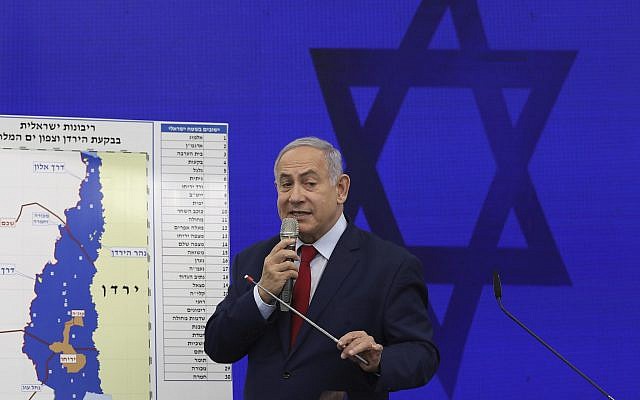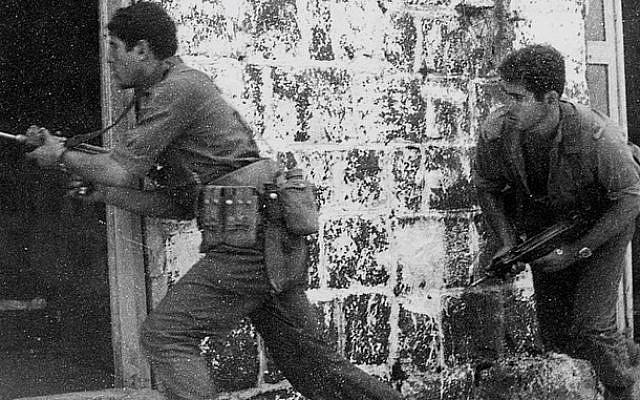After more than a decade in power, ‘Mr. Security’ seeks to shore up enough right-wing support to continue his rule in Tuesday’s elections

AFP — Benjamin Netanyahu has become Israel’s longest-serving prime minister with right-wing leadership and by repeatedly besting rivals with deft political moves, but he will have to pull another rabbit out of his hat in Tuesday’s elections.
The 69-year-old is fighting his second election in five months with a potential corruption indictment looming.
After April polls, he suffered one of the biggest defeats in his political career when his Likud party along with its right-wing and religious allies won a majority, but he failed to form a coalition.
Rather than risk allowing another candidate to have a shot at doing so, he opted for a second election.
He is again locked in a tough race against his main rivals from the Blue and White centrist alliance, led by former military chief Benny Gantz.
The attorney general has announced his intention to indict Netanyahu on fraud, bribery and breach of trust charges pending a hearing, expected to be held in early October. He is not legally required to resign if indicted, only if convicted with all appeals exhausted, but political pressure would likely be intense.
Many expect him to seek immunity from parliament if reelected. He has spent years outlasting opponents and he could well do so again.
“He is fighting for his life,” said Gideon Rahat of Jerusalem’s Hebrew University and the Israel Democracy Institute think tank. “He is fighting for not having to face the court. It is his personal war.”
He has campaigned with a combination of divisive populism and attempts to portray himself as a world statesman by talking up his relationships with foreign leaders, including US President Donald Trump and Russian President Vladimir Putin.
True to form, he issued a last-minute pledge last Tuesday to annex the Jordan Valley in the West Bank if reelected, which many saw as a play for vital right-wing nationalist votes.

‘Mr. Security’
The son of a historian with his familiar gray comb-over has entrenched himself at the top so firmly he has been labeled “King Bibi,” using his nickname dating to childhood.
Few doubt his political effectiveness.
Much of his popularity has to do with another nickname — “Mr. Security” — in a country where such issues are always on voters’ minds.
Netanyahu frequently talks openly about Israel’s air war in Syria against Iran and its Lebanese proxy Hezbollah.
He generally avoids talking about the Palestinians apart from security operations.
Netanyahu was born in Tel Aviv in 1949 less than 18 months after Israel’s creation. He and his wife Sara have two sons, and he has a daughter from a previous marriage.
The son of a history professor active in Israeli right-wing politics, Netanyahu grew up partly in the United States.
He attended the prestigious Massachusetts Institute of Technology, and with his fluent, American-accented English would appear on television speaking forcefully in defense of Israel.
He performed his Israeli military service with an elite unit and was wounded in combat, but another family member’s service may have affected him more deeply.

In 1976, his brother Yonatan died in a commando raid to rescue hostages at Entebbe airport in Uganda. Netanyahu has called the operation “a very dramatic national experience” and “one of great personal consequence.”
‘Too pragmatic’
Israeli politics in its early years was dominated by the Labor party, but the first victory by Likud, then led by Menachem Begin, in 1977 helped lay the groundwork for Netanyahu’s political future.
His career took off when he was posted to the Israeli embassy in Washington and later served as ambassador to the United Nations.
He became Israel’s youngest prime minister in 1996, at 46, but was defeated three years later.
Netanyahu would return to power in 2009 and has remained in office ever since.
While Israel’s economy has grown under his watch and his security credentials have shored up his right-wing base, many call his politics too divisive.
They accuse him of scare tactics and pitting Israelis against each other by castigating those who disagree.
“The trouble that the world had in dealing with Netanyahu was not that he was an ideologue, but, rather, that he was too pragmatic, and prone to change his mind in order to curry favor with key voting groups in Israel,” wrote Neill Lochery in his biography “The Resistible Rise of Benjamin Netanyahu.”
As reported by The Times of Israel
